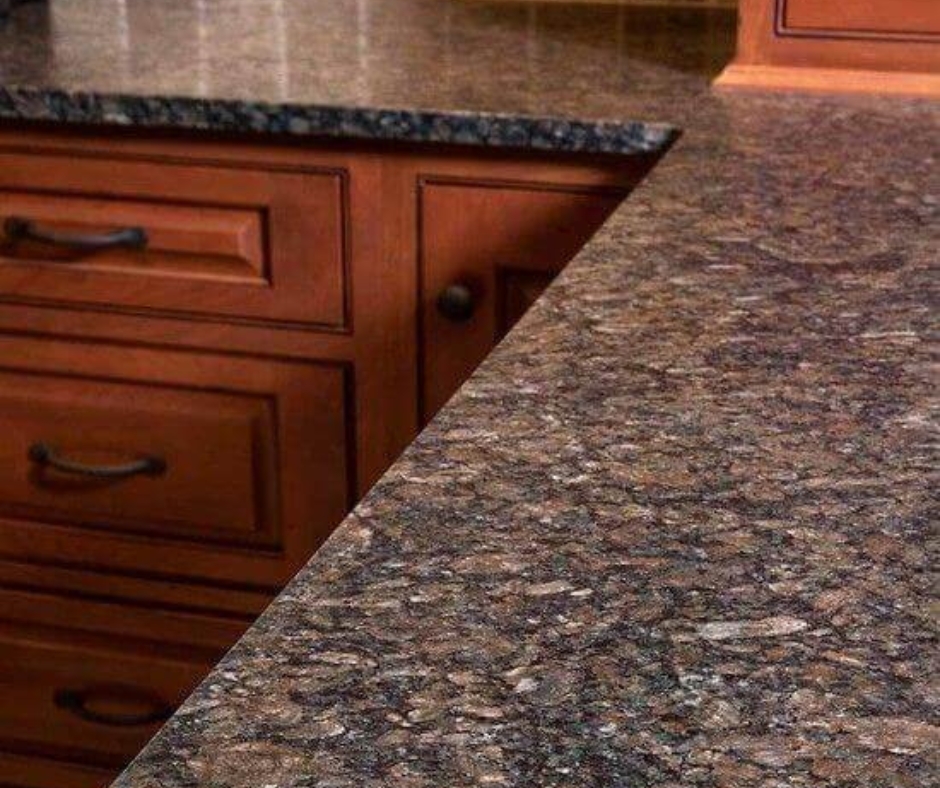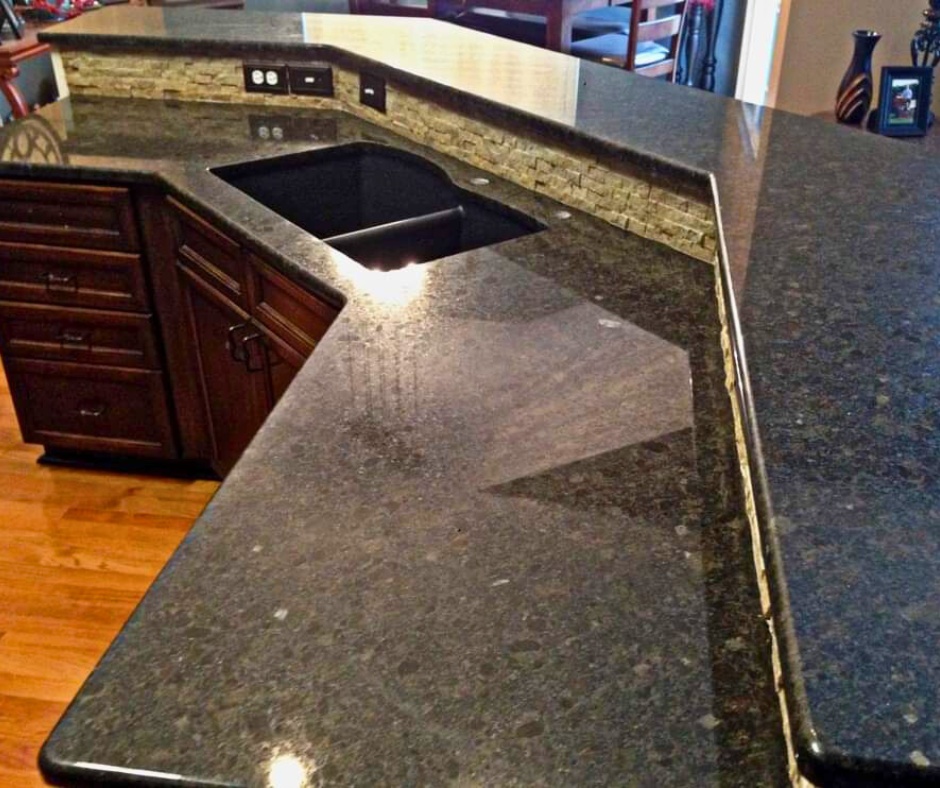“Essential Granite Countertop Care Tips for 2025”
Granite Countertop Care Tips Granite countertops are a classic and stylish option for any kitchen or bathroom. Renowned for their strength, beauty, and natural appeal, granite surfaces can endure for decades with proper care and maintenance.. However, even the most resilient material requires care to retain its glossy finish and prevent damage. As we approach 2025, it’s important to stay up to date with the best practices for maintaining your granite countertops, ensuring they continue to enhance your home for years to come. In this blog, we will cover everything you need to know about granite countertop maintenance in 2025. From cleaning techniques to preventive care, here are the essential steps to preserve the beauty of your granite surfaces.
1. Why Proper Maintenance Matters
Granite is a natural stone that’s not only beautiful but also highly durable. It’s resistant to heat, scratches, and stains to a certain extent, which makes it ideal for kitchens and bathrooms. However, without proper care, granite countertops can lose their shine, develop stains, or suffer from wear over time. Regular maintenance will not only help preserve the appearance of your granite but will also enhance its lifespan.
2. Routine Cleaning
The first and most important aspect of granite countertop maintenance is keeping the surface clean. Daily cleaning is simple but vital. Granite is not overly porous, so it’s less likely to harbor bacteria or germs compared to other materials. Nevertheless, food particles and dirt can accumulate on the surface, making it essential to clean your countertops regularly.
- Use a Mild Dish Soap and Water Solution: Mix a few drops of mild dish soap with warm water. Use a soft cloth or sponge to gently wipe the countertop. Avoid harsh chemicals or acidic cleaners, as they can dull the finish of the granite over time.
- Avoid Abrasive Scrubbers: Steel wool pads or rough sponges can scratch the surface of your granite, which can be difficult to repair. Always use soft, non-abrasive cloths for cleaning.
3. Stain Prevention
While granite is naturally resistant to stains, it is still susceptible to damage from certain substances. Oil, wine, vinegar, coffee, and other dark liquids can cause stains on your granite countertops. To prevent staining, follow these tips:
- Clean Spills Immediately: The key to avoiding stains is quick action. As soon as a spill occurs, wipe it up with a soft cloth. The longer a substance sits on your granite surface, the more likely it is to penetrate and cause staining. Granite’s porous nature allows substances to absorb and stain over time.
- Use Coasters and Trivets: To protect your granite countertops from coffee mugs, glasses, or hot pots, always use coasters and trivets. Even though granite is heat-resistant, prolonged exposure to high heat can weaken the surface over time.
- Apply a Sealer: Using a high-quality granite sealer is crucial to maintain your countertops’ resistance to stains. Granite is naturally porous, meaning it can absorb liquids over time if not adequately sealed. Resealing your granite countertops is not a one-time task; it’s advisable to reseal them every 1-3 years, depending on how often the countertop is used and the specific type of granite.
4. Polishing Granite Surfaces
To maintain the glossy, polished look of your granite countertops, periodic polishing is essential. Granite can lose its luster over time due to normal wear and tear, but polishing it will restore its shine and elegance. Here are some tips for polishing:
- Use Granite-Specific Polish: Look for polishes designed specifically for granite countertops. These products contain gentle ingredients that won’t harm the stone or leave a greasy residue.
- Polish Regularly: Depending on how much you use your countertops, you should polish them every 3 to 6 months. Regular polishing ensures that your granite stays shiny and prevents surface dullness.
5. Sealing Granite Countertops
Granite countertops are not impervious to liquids, so sealing is one of the most important aspects of maintenance. A quality sealer forms a protective barrier on the surface of the granite, preventing moisture, oils, and stains from seeping into the stone.
How to Check if Your Granite Needs Sealing: Place a few drops of water on the countertop. If the water beads up and doesn’t absorb into the stone, your granite is well-sealed. If the water soaks into the stone, it’s time to reseal the granite.
How Often to Reseal Granite: On average, granite countertops need to be resealed every 1-3 years. However, heavy-use areas such as kitchen counters may need resealing more frequently, while less-used surfaces may require it less often.
Choose a Good Sealer: There are many granite sealers on the market, ranging from spray-on to liquid options. Choose a sealer with good reviews and one that is appropriate for your type of granite. If you’re unsure, ask a professional for advice.
6. Avoiding Scratches
Granite countertops are highly resistant to scratches, but they are not scratch-proof. Heavy-duty cleaning pads, sharp knives, and other hard objects can leave marks on the surface, affecting the beauty of your countertop. To avoid scratches:
- Use Cutting Boards: Never cut directly on your granite countertop. Always use a cutting board to protect the surface from sharp knives.
- Place Heavy Objects Carefully: Avoid dropping heavy items like cookware, as this can cause cracks or chips. It’s best to lift and place heavy objects gently.
7. Preventing Chips and Cracks
Although granite is incredibly durable, it can still chip or crack if exposed to excessive force or impact. To protect your granite countertops:
Avoid Dropping Items:
Be cautious with heavy objects in the kitchen, especially around edges or corners. Dropping something heavy can cause chips or cracks that may require professional repair.
Fix Chips Promptly:
If your granite countertop does suffer a chip, don’t ignore it. It’s best to have a professional repair it immediately to prevent further damage. Prompt professional repair of a chip restores the surface and maintains the countertop’s integrity.
8. Deep Cleaning Granite Countertops
Even with regular maintenance, granite countertops may need a deep cleaning every once in a while. This process will help remove built-up grime, oils, and bacteria that regular cleaning can’t reach.
- Use a Deep Cleaner: Purchase a granite-safe deep cleaner to remove built-up grease or residue. Be sure to follow the instructions on the product label.
- Avoid Harsh Chemicals: Never use bleach or ammonia-based cleaners on granite, as these can damage the surface.
9. Granite Care in 2025
As we look forward to 2025, maintaining granite countertops has become even easier with the rise of new, advanced cleaning and sealing products. Innovations in the granite care industry provide enhanced durability, easier cleaning, and better protection against stains and scratches. Many granite countertop sealers now contain nanoparticles that provide a longer-lasting seal, reducing the need for frequent resealing.


